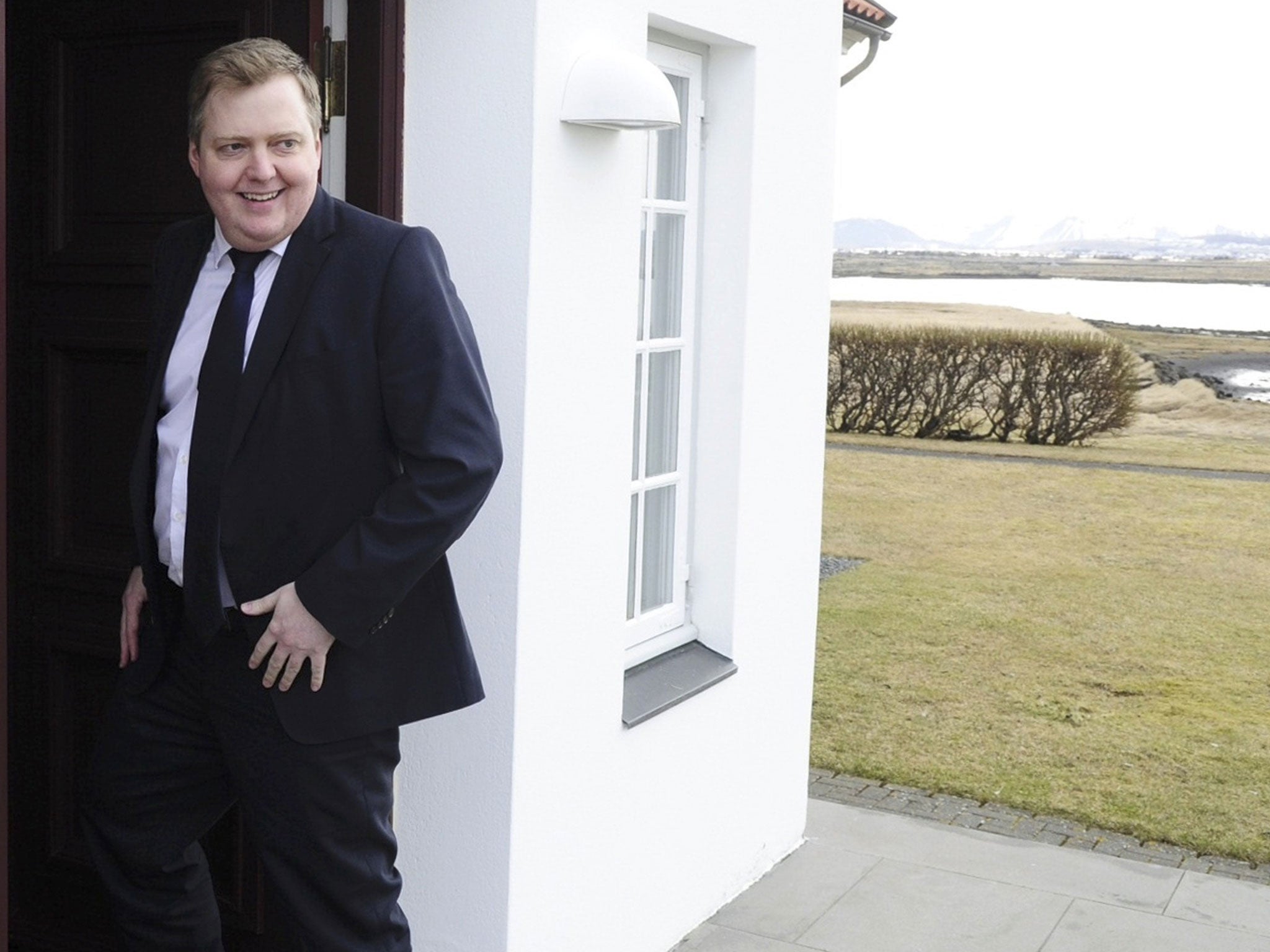Iceland has forced out its Prime Minister. Why aren't we protesting like them?
Avoidance or evasion? Who cares, they're both wrong


Your support helps us to tell the story
From reproductive rights to climate change to Big Tech, The Independent is on the ground when the story is developing. Whether it's investigating the financials of Elon Musk's pro-Trump PAC or producing our latest documentary, 'The A Word', which shines a light on the American women fighting for reproductive rights, we know how important it is to parse out the facts from the messaging.
At such a critical moment in US history, we need reporters on the ground. Your donation allows us to keep sending journalists to speak to both sides of the story.
The Independent is trusted by Americans across the entire political spectrum. And unlike many other quality news outlets, we choose not to lock Americans out of our reporting and analysis with paywalls. We believe quality journalism should be available to everyone, paid for by those who can afford it.
Your support makes all the difference.Why can’t we be more like Iceland? That’s a sentence I never imagined I would write, but when I see the pictures of thousands of indignant Icelanders taking to the streets to protest over their prime minister’s tax arrangements, it does make me wish that we Britons had the same zero- tolerance attitude towards the tax affairs of rich and well-connected members of society.
Sigmundur David Gunnlaugsson, who became Iceland’s PM in 2013, is accused of using a company he set up in the British Virgin Isles in 2007 to shelter millions of pounds from the tax man (and not declaring this in his register of interests), and this is seen as particularly egregious when set against the collapse of his country’s banking system and the widespread pain that caused. And today he was forced to resign.
Secrecy and complexity have been built into the global network of tax havens as a necessary shield against prying eyes, but the massive leak of documents from offshore law firm Mossack Fonseca, and the dogged investigative work of a consortium of journalists from 80 countries, have brought this international scandal into the public domain, with the inevitable consequences.
The good people of Reykjavik were not across the finer detail of what their political leader has been up to, but they know it was wrong. That’s because they see paying tax as a moral duty rather than just a legal commitment. I’m not sure the same attitude pertains here in Britain, or in America either. Our reaction is more to shrug our shoulders than to demand to change in a very direct and compelling way. We find ourselves sucked in to a legalistic argument that becomes about semantics. Avoidance or evasion? Legitimate financial planning or unlawful activity?
I would rather the question was framed in a different way. Do you think it is morally defensible not to pay your full whack of taxes? How can it be right that you deprive the Exchequer of millions of pounds that should go to teaching our children or nursing our sick? It may be legal – and, until there is a consistent public outcry, it will continue to be so – but does that make it right? Of course not. We should celebrate those who pay their taxes – I’ve always thought the publication of a list of Britain’s top taxpayers would be a sensible step – and we should name, but particularly shame, those who don’t.
What these latest revelations do more than anything is to feed into the low-level anger that most people feel about the apparatus of the establishment, whether that be government or business. We still haven’t had a proper reckoning from the financial crash of 2007-08, and here comes more exposure of the rich and privileged playing the system forto their own advantage. This will inevitably have a damaging effect on society.
As people in mature, liberal democracies lose faith in established structures, so they will turn to extreme solutions. This, to some extent, explains the rise of Donald Trump, the increasing popularity of far-right parties in Europe, and the ascent of Jeremy Corbyn. We need answers, and it’s only the people of Iceland who have found a peaceful – and, I hope, effective – expression of their anger.
Join our commenting forum
Join thought-provoking conversations, follow other Independent readers and see their replies
Comments